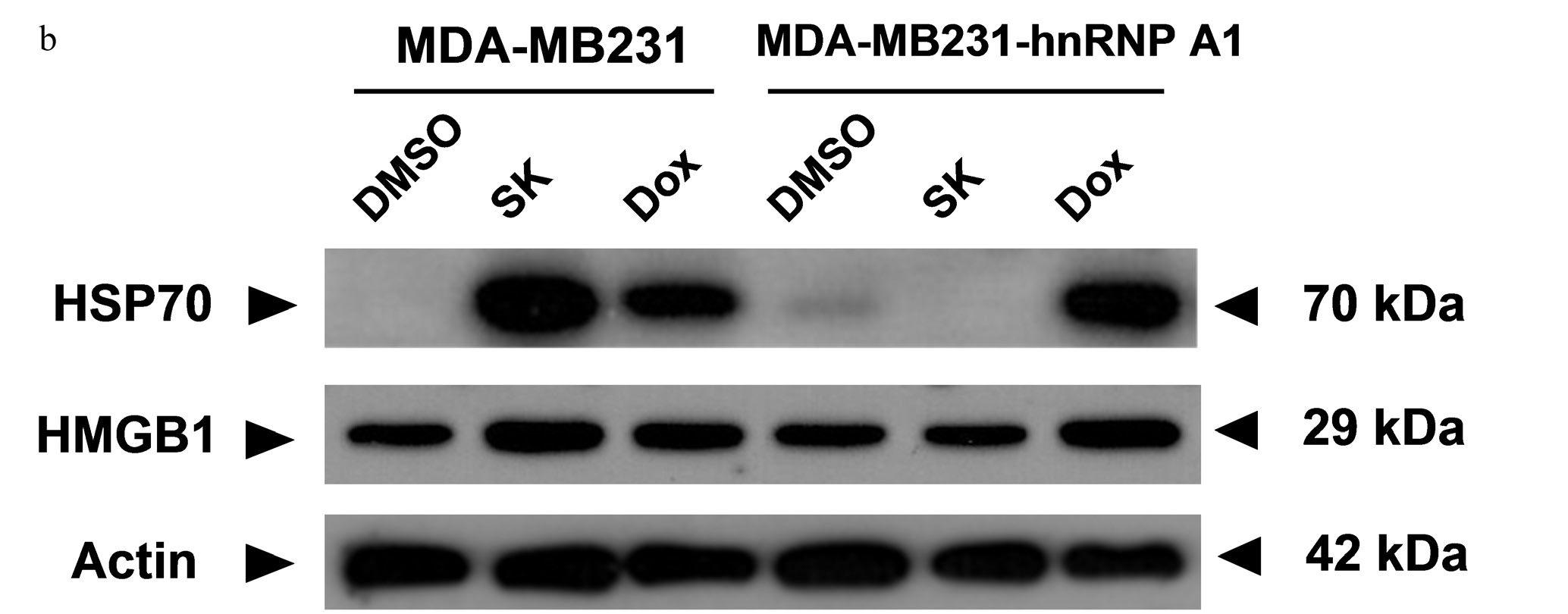Corrections:
Correction: Immunogenicity of mammary tumor cells can be induced by shikonin via direct binding-interference with hnRNPA1
Metrics: PDF 1702 views | ?
1 Agricultural Biotechnology Research Center, Academia Sinica, Taipei, Taiwan, ROC
2 Institute of Pharmacy and Biochemistry, University of Mainz, Germany
3 School of Medical Laboratory Science and Biotechnology, Taipei Medical University, Taipei, Taiwan, ROC
4 Institute of Biological Chemistry, Academia Sinica, Taipei, Taiwan, ROC
Published: August 14, 2018
This article has been corrected: An institutional investigation was conducted at the request of the Oncotarget editorial staff by the Academia Sinica Ethics Committee (Taipei, Taiwan). The Committee concluded the following: “The partial duplication of Figure 4a and 4b is judged to be a mistake during data processing, rather than a research misconduct.” The correct Figure 4B is shown below; 4A appears correctly in the original article. The authors declare that these corrections do not change the results or conclusions of this paper.
Original article: Oncotarget. 2016; 7:43629-43653. DOI: https://doi.org/10.18632/oncotarget.9660.

Figure 2: SK suppresses the recognition activity of hnRNPA1 of a targeted nucleotide sequence and the splicing activity of hnRNPA1-targeted genes in vitro. b. The purified UP1 was incubated with increasing amounts of SK (0-4 μg/test) for 30 min and then incubated with biotin-5′-end-labeled WT RNA (50 ng/test) for another 30 min.
 All site content, except where otherwise noted, is licensed under a Creative Commons Attribution 4.0 License.
All site content, except where otherwise noted, is licensed under a Creative Commons Attribution 4.0 License.
PII: 26007

